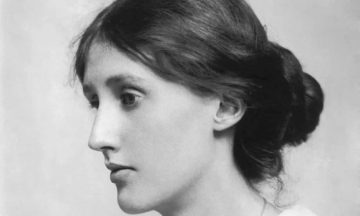Aida Edemariam in The Guardian:
 Virginia Woolf, aged 23, recently orphaned and still 10 years away from publishing her debut novel, was first commissioned to write reviews for the TLS in 1905. She began, as Francesca Wade points out in her preface to this collection, like any novice – by reviewing anything the editors sent her: guide books, cookery books, poetry, debut novels. Often she was filing a piece a week, reading the book on Sunday, writing – in the anonymous, authoritative TLS first-person plural “we” – up to 1,500 words on Monday, to be printed on Friday. The reviews gave her independence, and they made her a writer.
Virginia Woolf, aged 23, recently orphaned and still 10 years away from publishing her debut novel, was first commissioned to write reviews for the TLS in 1905. She began, as Francesca Wade points out in her preface to this collection, like any novice – by reviewing anything the editors sent her: guide books, cookery books, poetry, debut novels. Often she was filing a piece a week, reading the book on Sunday, writing – in the anonymous, authoritative TLS first-person plural “we” – up to 1,500 words on Monday, to be printed on Friday. The reviews gave her independence, and they made her a writer.
Through these pieces she “learnt a lot of my craft”, she once recalled; “how to compress; how to enliven”, how “to read with a pen & notebook, seriously”. She could not of course have managed it without a childhood of reading (“the great season for reading is the season between the ages of18 and 24”, as she puts it, somewhat archly, in “Hours in a Library”). Also essential was the cultural capital she took for granted as the daughter of leading man of letters Leslie Stephen (and which she recognises as a foundation of Fanny Burney’s work: “all the stimulus that comes from running in and out of rooms where grown-up people are talking about books and music”). She possessed the journalist’s and then the novelist’s gift for detail (the 107 dinner parties Henry James attended in one season, for instance, without being appreciably impressed by any of them), and the humility, at least at first, to understand that she must earn the attention of “busy people catching trains in the mornings” and “tired people coming home in the evening”.
She was working out, too, what being a critic meant. ‘A great critic” – a “Coleridge, above all” – “is the rarest of beings” she believed; what’s more, he wrote of drama and of poetry. The criticism of fiction “is in its infancy”, she wrote. This was an opportunity, but also a challenge – for where, as a young woman, and an autodidact, did she fit in? That gender-ambiguous “we” sometimes feels like a cloak swept about her with too much bravado.
More here.
